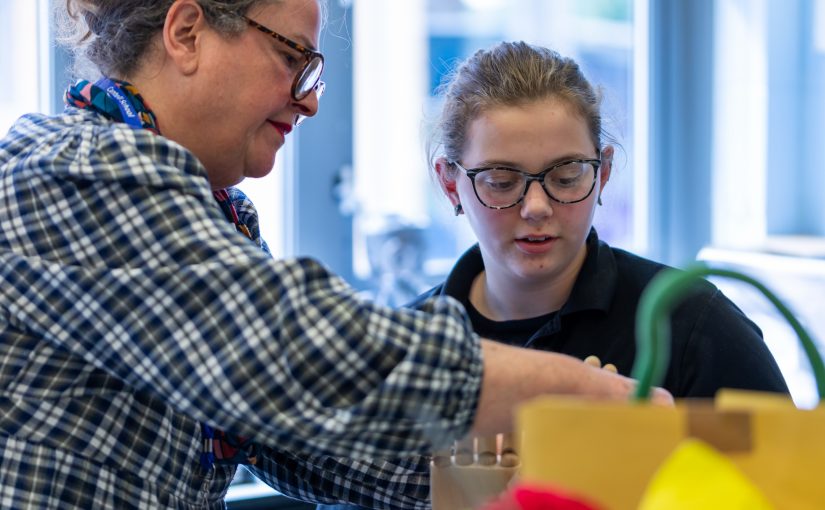One of the strategic priorities for the SCEP, identified by our members, is ‘building a workforce for the future.’ We want to provide inclusive training and skills development opportunities for young people and the cultural sector. This priority aims to build on the value of studying the arts for improving young people’s work readiness, for example developing teamwork and communication skills, and also to support routes into careers in the creative industries.
Many young people and schools don’t know what careers are possible in the cultural and creative industries, and often career pathways into the creative industries are unclear. Research from the Careers and Enterprise Company demonstrates that experiences of the workplace are a valuable tool to help young people understand the options available. Most secondary schools in Southampton offer their students one week of work experience in year 10. However, hosting an entire weeklong work experience is not possible for the many micro and small businesses in the cultural and creative industries.
Collaborative cultural work experience model
To help address the problems with the current model, the SCEP, with support from Artswork, is piloting a collaborative approach to cultural work experience with the aim of supporting micro and SMEs to offer placements and enhance students’ knowledge of the cultural and creative industries.
We want to create a framework where arts organisations can collaborate and collectively offer a weeklong placement. This might mean an anchor organisation hosts students for the week and freelancers and micro-organisations provide tasks and experiences. Or, it could be two or three organisations host for one or two days in partnership.
What do students and teachers want from cultural work experience?
We have been speaking to students and teachers in Southampton to better understand their needs. So far, they have told us:
- Most Southampton schools offer students one week of work experience in Year 10.
- Most schools run this towards the end of the summer term. However, one school runs theirs in the autumn term and another does theirs in the spring term.
- Schools ask students to organise their own placements.
- Students look for work experience by reaching out to friends and family and by writing to organisations.
- Most students would be happy to do work experience as part of a group and would like to have a range of tasks to work on rather than just one activity.
Timeline and activity
We plan to pilot the first work experience placements in June and July 2025. We are currently surveying teachers, students, cultural organisations, and freelancers to find out what you would want from this collaborative work experience model. We will then run workshops to devise the model in February 2025. In the spring, we will recruit cultural organisations to take part in the pilot and advertise the placements to students.
Help shape the collaborative work experience offer
Please complete our short surveys to tell us what you want from work experience. For cultural organisations and teachers, you can also express an interest in taking part in the pilot at the end of the form.

